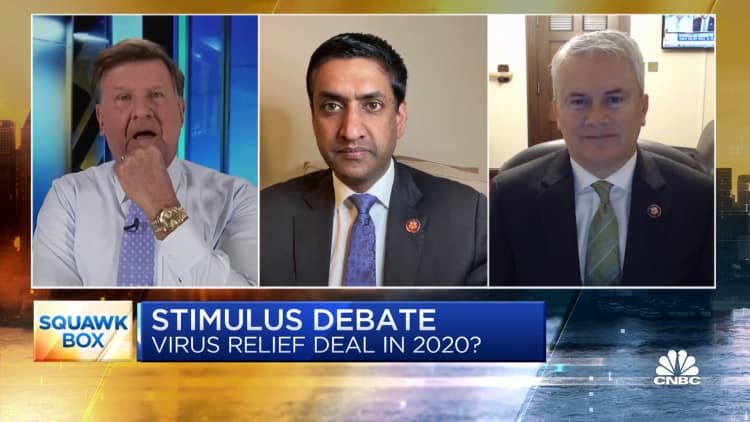Hundreds of business groups are pushing lawmakers to allow Paycheck Protection Program borrowers to write off expenses covered by loan proceeds.
"We ask that you bring that same spirit of urgency and cooperation before the end of this session to prevent an avoidable catastrophe for millions of small businesses that, without Congressional action, will face a surprising, and, in many cases, insurmountable tax bill next year," the trade associations wrote in a Dec. 3 letter to House Speaker Nancy Pelosi, D-Calif., and Senate Majority Leader Mitch McConnell, R-Ky.
The missive was also sent to Senate Minority Leader Chuck Schumer, D-N.Y, and House Minority Leader Kevin McCarthy, R-Calif.
In all, more than 560 business groups, including the American Institute of CPAs, signed off on the letter to lawmakers.
Specifically, the letter writers want Congress to enact legislation before the end of the year that includes a technical correction to address the tax treatment businesses face when PPP loan balances are forgiven.
Congress has spent the week hammering out the details of the next Covid relief package.
Right now, a $908 billion emergency relief framework introduced by bipartisan lawmakers has the support of Pelosi and Schumer.

That package sets aside $288 billion for the Paycheck Protection Program, a forgivable loan program that was established by the CARES Act.
Recipients of PPP loans are generally eligible for loan forgiveness if they use at least 60% of the proceeds to cover payroll costs. Those that fall short of the threshold may be eligible to have part of the balance wiped.
Though forgiveness of this loan is tax-free, the IRS has said that borrowers can't write off expenses covered by a PPP loan that's forgiven.
This would result in higher taxes unless Congress acts, the business organizations said in their Dec. 3 letter to lawmakers.
"The effect of this ruling is to transform tax-free loan forgiveness into taxable income, raising the specter of a surprise tax increase of up to 37% on small businesses when they file their taxes for 2020," the business groups wrote.
PPP in the next round

The bipartisan Covid proposal offers a second draw for PPP loans. It also ensures that recipients of aid won't be taxed on the first round of forgivable loans and offers simplified forgiveness for loans under $150,000, said Rep. Josh Gottheimer, D-N.J., on Tuesday morning at a press conference on Capitol Hill.
Gottheimer is among the lawmakers hammering out the bipartisan framework.
Meanwhile, a proposal from Sen. McConnell doesn't mention deductibility, but it does allow battered business to take a second injection of PPP funding.
It also expands forgivable expenses to covered supplier costs and covered worker protection expenditures.
The program -- which has issued $525 billion in loans to more than 5 million businesses -- has run into its share of difficulties over the course of the year, including the steady rollout of guidance from Treasury and the Small Business Administration in the form of "frequently asked questions."
Deductible or not?
The question of whether borrowers can deduct expenses covered by the loan has been an area of contention in Washington, too.
The position at the Treasury and IRS has been that since forgiveness of the loan is tax-free, borrowers can't deduct expenses. On the other hand, lawmakers have proposed legislation that will permit the write-offs.
Treasury and the IRS said last month that business owners who "reasonably believe" their PPP loans will be forgiven can't deduct the costs.
All of this has resulted in more confusion for businesses: Being unable to deduct the expenses could inflate their income on paper and boost their tax bill, tax professionals said.
"We continue to hear from state CPA societies, our members and CPAs' clients that the PPP loan allowed them to pivot their business, stay open and keep employees hired during the pandemic," said Edward Karl, CPA and AICPA vice president of taxation.
"PPP loans have helped organizations manage issues such as supply chain interruptions, sick employees and customers' changing buying habits," he said. "To burden businesses with additional, potentially significant taxes at this time does not reflect Congressional intent."





